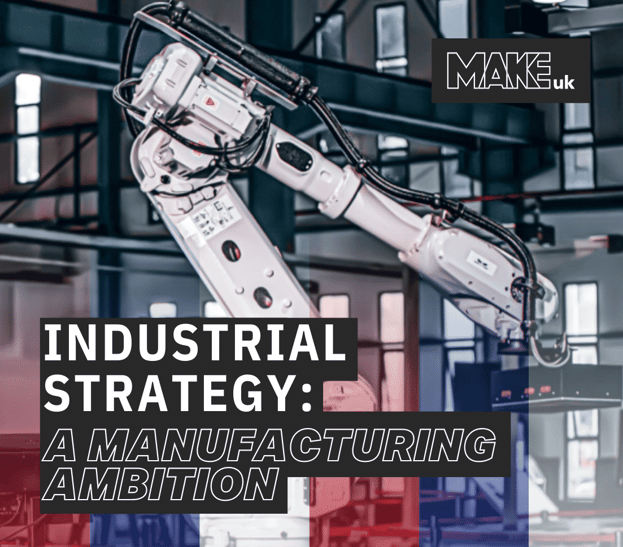
The UK’s manufacturing industry plays a crucial role in driving economic growth, innovation, and job creation. Consequently, the development of a robust industrial strategy for manufacturing is imperative, to lay the foundations for a thriving sector and ensure its competitiveness on a global scale.
According to research, 99 per cent of manufacturers believe that the UK should have a clear industrial strategy.
Recently, the Make UK campaign for an industrial strategy was launched, supported by Hone-All’s director, Andrea Wilson, who regularly showcases her commitment to the development of a robust manufacturing industrial strategy that will strengthen the sector and ward off global challenges to its future success through her LinkedIn campaign for a Minister for Manufacturing.
Why A Manufacturing Industrial Strategy Is Important
The significance of a Manufacturing Industrial Strategy in the UK cannot be overstated, as the industry plays a significant role in stimulating and supporting the country’s economy:
-
Manufacturing accounts for approximately one-half of all UK exports.
-
In 2022, the sector generated £206bn gross value for the economy, an increase of 20 per cent compared to 2012, and 15 per cent of total UK business investment.
-
Manufacturing provides employment for 2.6m skilled workers across the country, particularly in areas identified as priorities for levelling-up.
However, the UK’s manufacturing sector is at a critical point. The disruption caused by the UK’s exit from the European Union and the global pandemic, the need to meet net-zero targets by 2050, and advances in technology pose significant challenges for the industry as a whole, from small to medium-sized enterprises (SMEs) to large national entities.
So, how does the UK’s manufacturing industry compare to overseas competitors?
In comparison, the German manufacturing sector is double the size of the UK’s, accounting for more than 18 per cent of the national GDP in 2021. Yet despite its strength and growth, the German government has put forward The Industrial Strategy 2030 to further reinforce the manufacturing sector’s competitiveness and to increase its contribution to national growth and prosperity. The German strategy focuses on three key areas: improving the overall conditions for entrepreneurial activities; strengthening new technologies by mobilising private capital; and maintaining technological sovereignty.
A strong manufacturing industrial strategy in the UK will provide a clear roadmap for growth and lay the groundwork for policies and initiatives that support the manufacturing sector. A well-crafted strategy should encompass various aspects, including:
-
Skills development
-
Investment in Research and Development (R&D)
-
Infrastructure improvement
-
Collaboration between industry and schools to raise the profile of manufacturing.
The strategy will act as a catalyst for economic progress by addressing the challenges faced by the manufacturing industry and unlocking its true potential.
What Are The Primary Objectives Of The Make UK Campaign?
The primary objectives of the Make UK campaign revolve around enhancing key challenges faced by the manufacturing industry. These objectives include:
-
Driving innovation
-
Fostering productivity and growth
-
Promoting sustainability and environmental responsibility
-
Nurturing a skilled workforce
By addressing these areas, the campaign aims to create an environment that allows manufacturers to flourish and remain competitive in an increasingly globalised market.
What Challenges Are Facing The UK Manufacturing Industry?
One of the specific challenges that the Make UK campaign aims to tackle is the skills gap. The manufacturing industry requires a highly skilled workforce to keep up with technological advancements and evolving demands, yet in 2022 engineering was the least popular GCSE option selected by students, with only 2,305 teenagers undertaking the course. Through targeted initiatives, such as apprenticeship programs, vocational training, and partnerships with educational institutions, the campaign aims to bridge the skills gap and create a pipeline of talented individuals able to contribute to the manufacturing sector.
Additionally, the campaign recognises the importance of embracing sustainability and environmental responsibility. Manufacturing processes have a significant impact on the environment: in 2020, the UK sector produced over 78m metric tons of carbon dioxide emissions and, while this is 40 per cent less than in 1990, the accelerating decline of the climate requires businesses to adopt sustainable practices that minimise waste, reduce carbon emissions, and conserve resources. The Make UK campaign advocates the implementation of eco-friendly strategies and the adoption of green technologies to create a more environmentally friendly industry.
Empowering Manufacturers To Thrive.
Ultimately, the Make UK campaign seeks to empower manufacturers to thrive and succeed in an increasingly competitive landscape. By addressing key challenges, promoting innovation and sustainability, and nurturing a skilled workforce, the campaign aims to create a supportive environment for manufacturers to grow and flourish.
The launch of the Make UK campaign, and the media coverage it has since attracted, we hope will be a significant step towards the development of a robust manufacturing industrial strategy. With a strong strategy in place, the industry will be well-equipped to ignite growth, foster innovation, and drive economic prosperity in the future.
Image Source: Make UK






